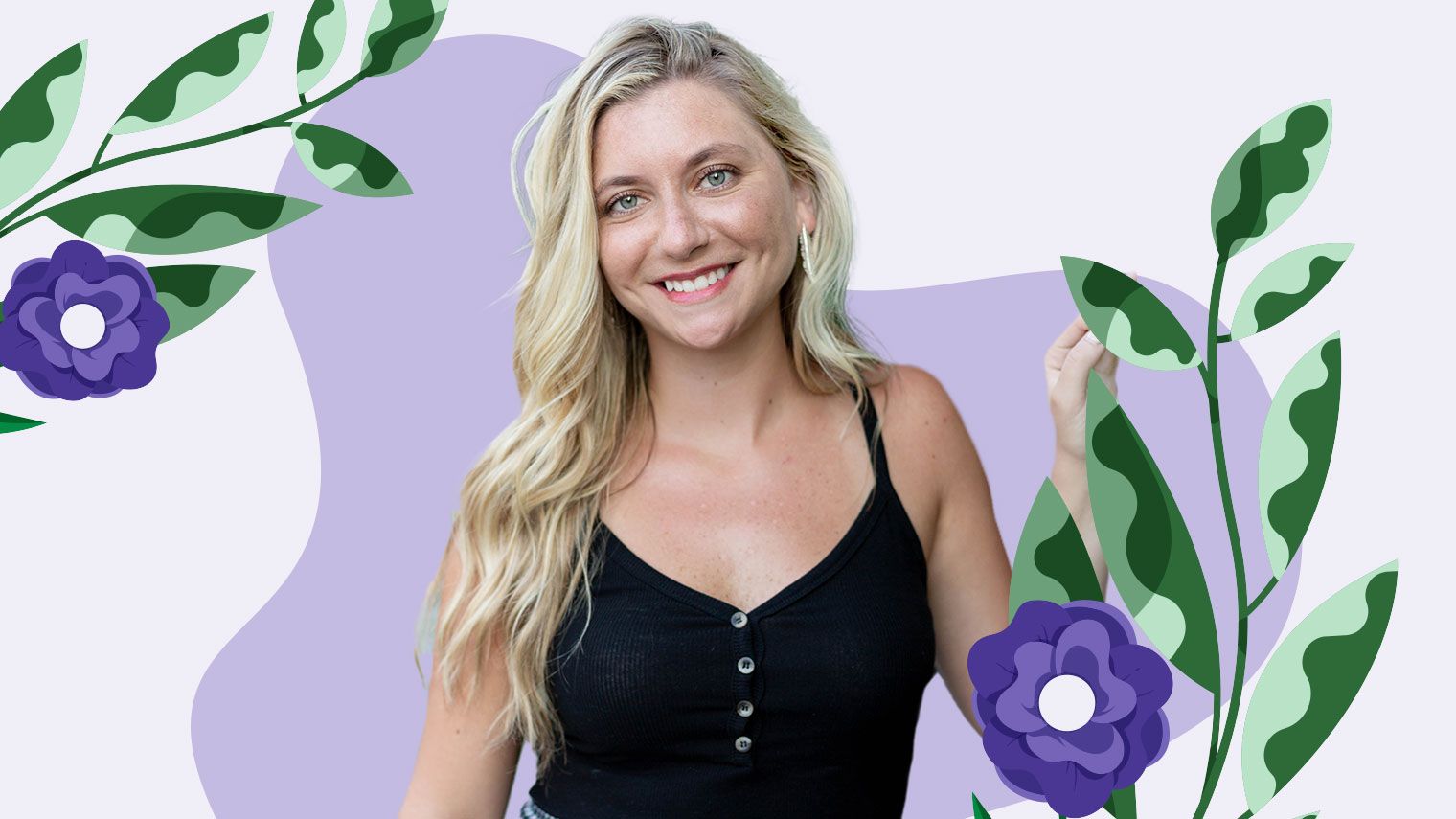Meet Your Bezzy IBD Guide: Alexa Federico
May 03, 2024
Content created for the Bezzy community and sponsored by our partners. Learn More

Photography courtesy of Alexa Federico / Design by Ryan Hamsher
Alexa’s own struggles with Crohn’s disease guided her toward advocacy. She hopes to help other people make positive changes and find support.
Although many preteens experience shifts in digestive health as part of growing older, Alexa Federico knew even at age 12 that her experience wasn’t normal.
She struggled with pain after eating, fatigue despite a good night of sleep, and weight loss even while eating more. Problems that didn’t seem gastrointestinal — such as joint pain and mouth sores — felt connected, and although several doctors chalked it up to adolescence, it all kept getting worse.
When Alexa started vomiting regularly and feeling so fatigued she could barely get out of bed, a pediatric gastroenterologist figured out that she had Crohn’s disease, a form of inflammatory bowel disease (IBD). Even then, the diagnosis was just the start of a journey toward trying to feel healthy, she said.
For the first 16 months after her diagnosis, she experienced multiple hospitalizations, cycling between steroids and flares, and feeling like she would never get better or start healing.
“There were so many ebbs and flows, and this condition became a big part of my story in terms of who I am,” Alexa recalled.


Finally, some answers
Then, she began seeing a functional physician who took a more integrative approach, including helping her make significant diet changes. “That turned out to be the secret sauce,” said Alexa.
“Going gluten- and dairy-free were the two biggest ones, as well as watching my sugar intake. It wasn’t easy because I come from a big Italian family. But it’s been worth it to finally know what normal and healthy feels like.”
Along with dietary shifts, Alexa has prioritized sleep, stress management, and finding the right type of movement — yoga, walking, and strength training are her top choices — and it’s all added up to much better management of her condition, she said.
She’s also become a nutritional therapy practitioner and wrote a book, “The Complete Guide to Crohn’s Disease & Ulcerative Colitis: A Road Map to Long-Term Healing.”
Not only has all of it helped her to navigate through her own IBD, but the experience has given her the opportunity to assist others, too.
Becoming an advocate
During her initial years with IBD, Alexa felt resentful and embarrassed and ended up working hard to hide her condition.
But in college, as the integrative changes made such a difference, she became more curious about why those shifts helped her so much — and whether they might work for other people with IBD.
“I began to feel empowered instead of limited, and I wanted to get the message out about what was helping me,” she said. “Although I started with an anonymous Instagram account, I gradually got more public and showed my face, as well as shared my story.”
“I began to feel empowered instead of limited, and I wanted to get the message out about what was helping me.”
Followers began to reach out and ask questions and show gratitude for seeing someone who “gets it,” she recalled. That led to working with Healthline (Bezzy’s sister platform) on articles about IBD, followed by being a guest host on a live chat when Bezzy IBD was launching.
When she was offered the opportunity to take over as a guide, she happily accepted and has been instrumental in leading live chats about a range of topics, including fatigue, medications, and sleep. Alexa also welcomes new people into the community and introduces herself to make sure they know it’s a safe space where they can discuss anything.
“It’s been really nice to be able to continue talking with more people in the IBD community, and it just keeps growing,” she said. “When I was first diagnosed and going through those years of struggling, I didn’t know anyone with IBD. I couldn’t connect with people who knew what I was going through. I’m happy it’s not like that anymore. We have this space where we can connect, and share our insights and our challenges, and be there for each other. I’m excited to continue being a source of support for everyone who needs it.”
Medically reviewed on May 03, 2024


Like the story? React, bookmark, or share below:
Have thoughts or suggestions about this article? Email us at article-feedback@bezzy.com.
About the author